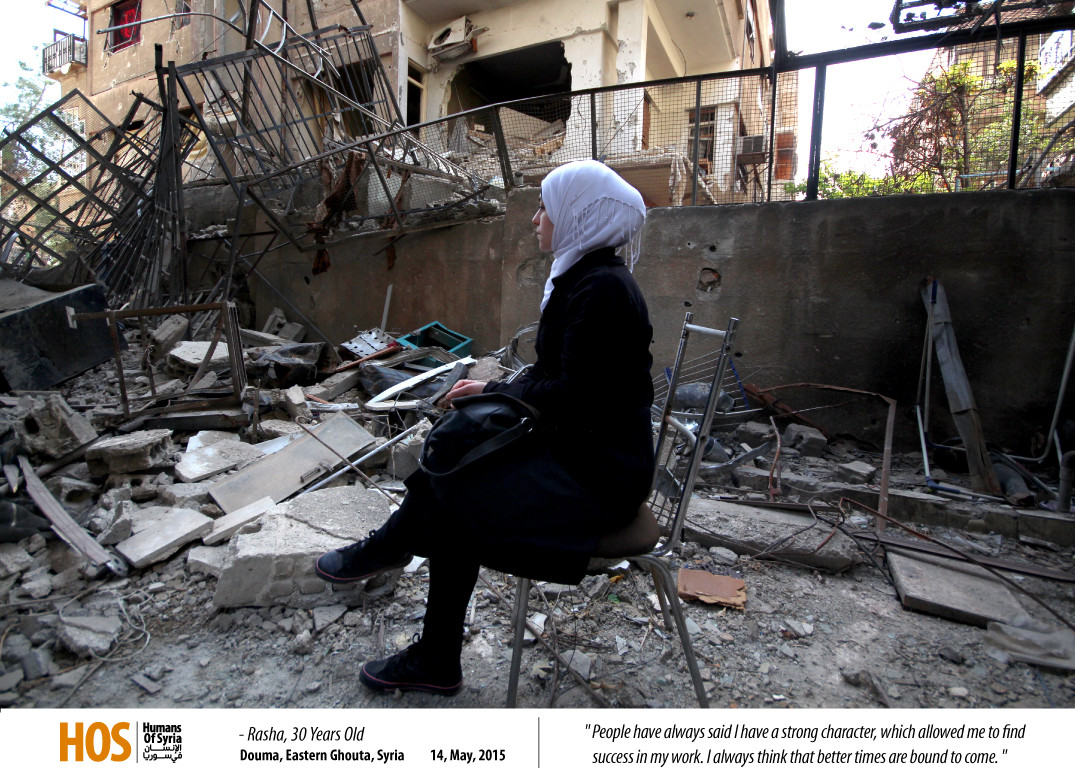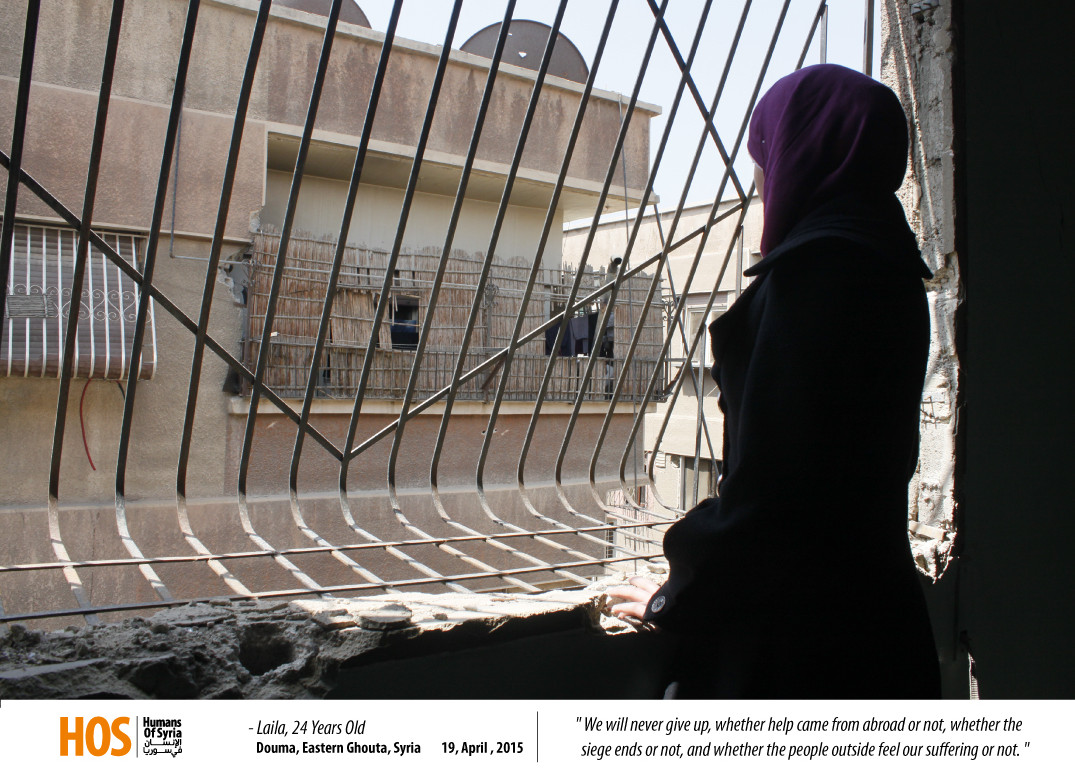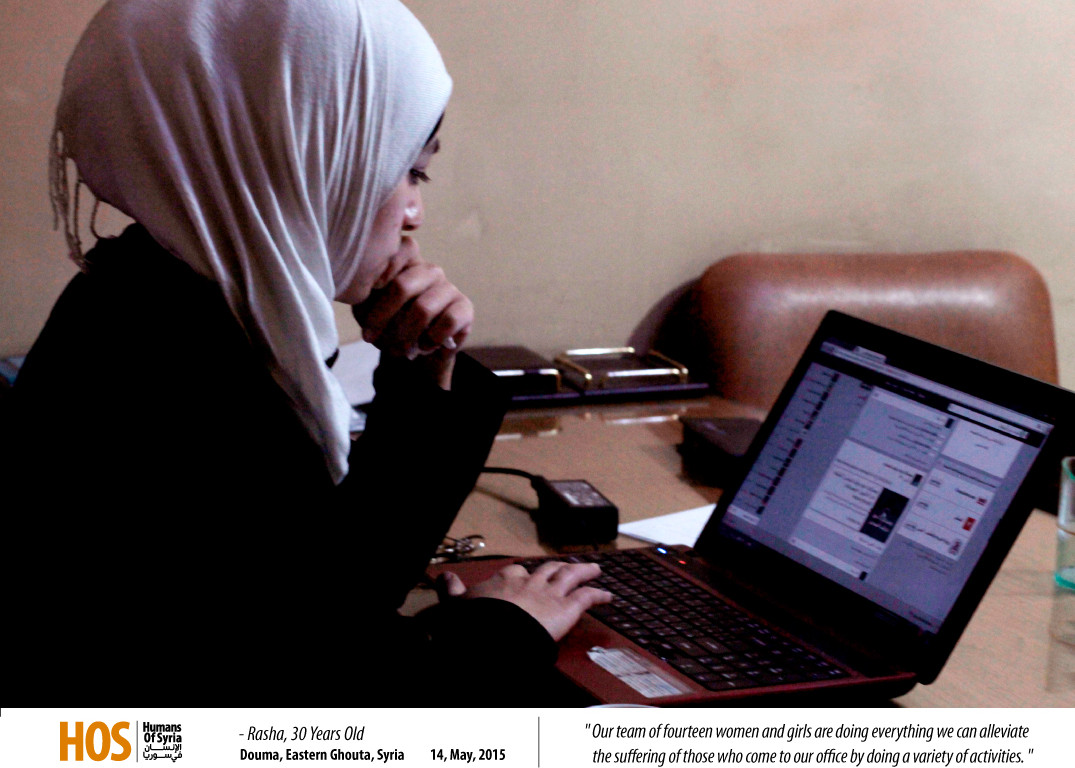In the besieged Ghouta areas of Damascus life, to the outside world, seems to have come to a standstill. However, that’s not the case for those inside. Rasha, 30 years old, who studied Kindergarten Education in Damascus, and living now in besieged Douma, starts her day at 8am and comes back at 7pm.
“I handle administration for the local 'Family Development office'. That’s in addition to my research and the lectures, seminars and courses I give in psychological counseling for adolescent girls and women, as well as relief work and psychological support for children.”
Rasha’s many activities include preparing for a new monthly magazine, titled “Let’s Forget”, as well as monitoring the psychological and social welfare of students at several schools. She works with a team of fourteen women and girls who follow up on the many psychological conditions that come to them, and keep the doctors updated regularly on the results.
Nevertheless, it was Rasha’s choice to stay in Douma, despite the many chances to escape and despite the tensions this has created with her family outside.
Laila, 24 years-old, on the other hand, was finishing her last year in agricultural engineering in Damascus when she found herself suddenly imprisoned in the besieged Ghouta during a visit to her family.
“Suddenly my life ground to a halt. In the early days, I lived on the hope that the road will open so I can return to my studies. I lived every day waiting for any news, even if it was a lie, but it was useless.”
However, after four months of desperation and anticipation, Laila decided to put her time into teaching and volunteering at a women’s support center.
“For the past three years, I’ve taught all age groups and all subjects, including science, math, physics, English, and chemistry, I’ve had a lot of experience in dealing with the students which qualified me to become a manager of one of the kindergartens here in Ghouta. In addition to my work at the kindergarten, I also help in one of the women's support centers, where we are trying to innovate ideas that help them to earn a salary.”
Through their work with women and family centers in Ghouta Laila and Rasha paint a very grim picture of the conditions behind the siege. This is especially the case for women as Rasha recounts:
“We've lived in harsh conditions in the siege for the past two years, suffering many tragedies. Many women have lost their husbands, and now they must bear all the responsibilities, so I always try to encourage and support women to find the strength needed to rise to the occasion.”
Alleviating the economic hardships, and empowering the masses of vulnerable women in these conflict situations is one of the most important work done by people like Laila and Rasha. Laila’s work focuses on “teaching women some occupations that can help them put food on the table, such as sewing, embroidery, knitting and cutting hair, as well as nursing and first aid.”
The stories of Rasha and Laila provide a window into life inside the besieged Ghouta. It also allows us to draw more nuanced narratives, not only of the challenges and vulnerabilities Syrian women face in the conditions, but also of their participation and efforts to alleviate them.
This post is published in collaboration with Humans of Syria, Radio SouriaLi and Souriatna newspaper.






